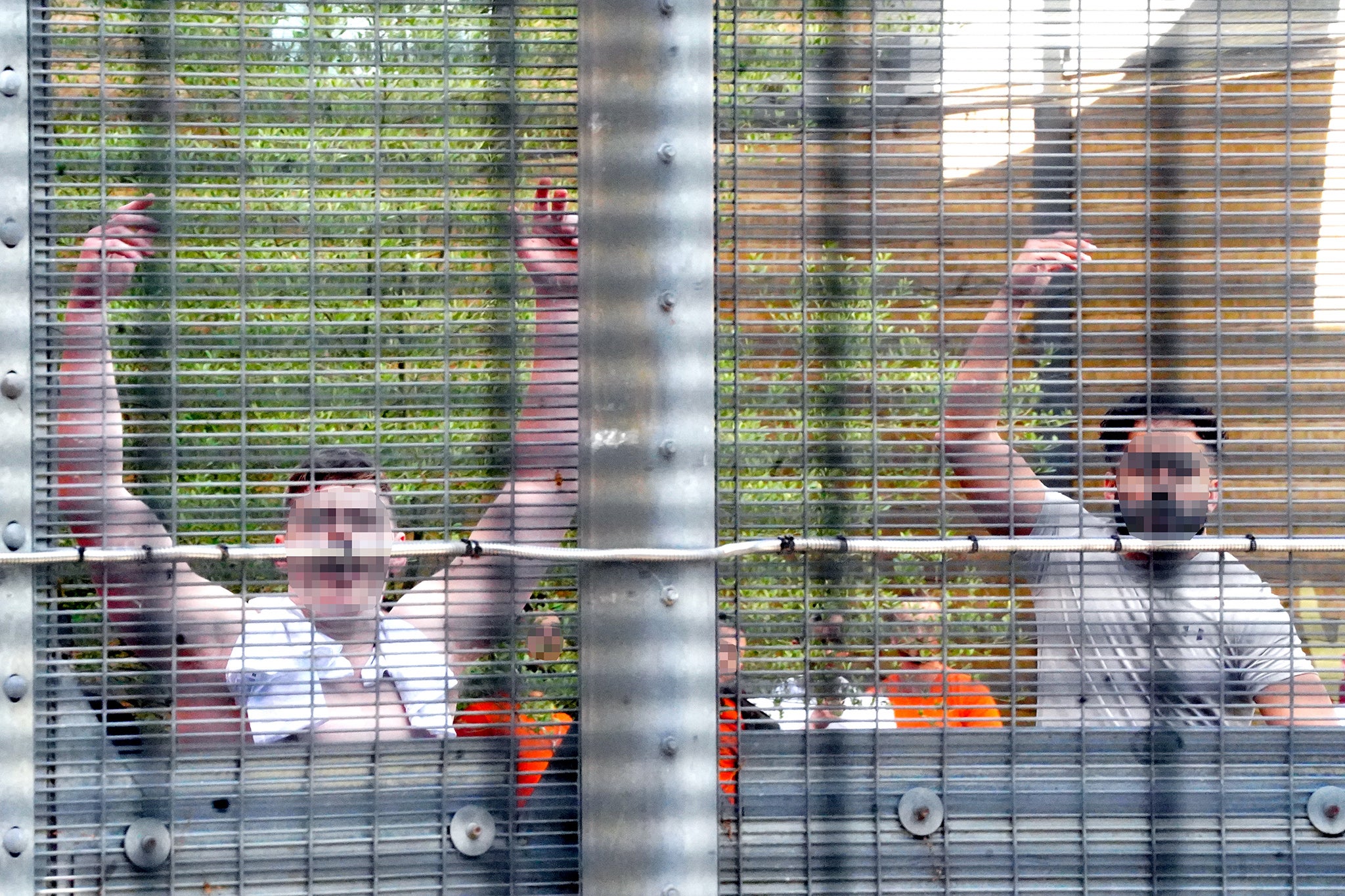Horror stories about migrant detention centres are true: as I learned the hard way
I wasn’t remotely surprised by the abuse of migrants at Brook House – I still suffer from PTSD from my barbaric treatment, writes one former detainee

The publication this week of the Brook House Inquiry – into the “unacceptable, often abusive” treatment of residents at a “prison-like” migrant removal centre in West Sussex – brought back terrible memories for me, of the many months I was kept in immigration detention as I fought my deportation.
I wasn’t shocked by the inhumane treatment laid bare in the 800-page report as, in my experience, such disgraces are routine for people detained under immigration powers. But I was relieved to see what is usually such a hidden experience made public.
Kate Eves’ public inquiry, whose findings were published on Tuesday, uncovered evidence of misconduct including excessive use of force, racist abuse, the humiliation of naked people and even inappropriate behaviour during suicide attempts. In a five-month period, there were at least 19 incidents of human rights breaches relating to torture and inhumane treatment at this one immigration removal centre.
I experienced such abuse first-hand myself.
I grew up in the UK, having been brought to the country to live as a young child. When I was 18, I spent time in a young offenders’ institute after committing a non-violent crime, for which I received a six-month sentence. It was while serving this sentence that I was told I would also face deportation.
Before that moment, I had no idea I could be deported to a country of which I had next to no memory. Almost my whole sentence passed before the Home Office informed me that they intended to send me back. I was extremely shocked.
At the end of my sentence, I was moved to an adult prison to be detained under immigration powers. The facility in which people facing deportation are detained – in a removal centre such as Brook House, or a jail – is entirely at the authorities’ discretion.
I was kept in prison for more than a year as I appealed against my deportation. Years later, my body still aches from the brutality of the place.
For more than six months of my detention, I was kept in solitary confinement, where I was locked in my cell for more than 23 hours a day. For two of those months, I was physically restrained (or “twisted up”, as officers called it) every day, simply for demanding to know when I was getting out. To put that into context, 15 consecutive days of solitary confinement is prohibited under the UN’s so-called “Mandela Rules”, and is considered torture.
I was no longer serving a criminal sentence, my custody had not been sanctioned by a court, and I was given no idea how long the ordeal would go for. Eventually, I stopped speaking to friends and family because I was tired of disappointing them when they asked when I would be released.
Immigration officers would come to see me monthly, threatening that if I didn’t sign my deportation paperwork and go back voluntarily, I would stay in prison. I was already at rock bottom – and the only thing I had left to hold on to was the hope of being reunited with my family. I would never give up my right to stay in the UK with them.
I also witnessed and experienced criminal and negligent behaviour from facility staff and decision-makers who routinely failed to follow official procedures. Healthcare provision was inadequate, and corruption and physical violence endemic.
And, after I was released on immigration bail, I was treated to scare tactics that verged on psychological torture. I was sent regular automated texts that referred to me as an “absconder”, and contained trigger phrases such as “you will be detained”, while reminding me that all of this stress would end if I decided to return “voluntarily”.
It’s clear to me now that immigration detention is abusive by design. It is intended to keep those migrants who get locked into the system in a constant state of stress to discourage them from fighting for their rights.
After more than a year in detention, I was granted immigration bail. Like 86 per cent of the people the Home Office detain, I was released back into the community. My detention had served no purpose at all.
Later, I received a decision on my deportation appeal. The judge granted my appeal, noting with bemusement that I did not even meet the minimum criteria for deportation in the first place.
While I’m happy to be back with my family and child, my period of detention continues to affect me. I have joint pains from being restrained and have been diagnosed with complex PTSD.
If the government stopped putting so much effort and money into destroying migrants’ lives and instead put the same effort into improving Britain’s healthcare and education systems, it would be much happier and heathier place for us all.



Join our commenting forum
Join thought-provoking conversations, follow other Independent readers and see their replies
41Comments